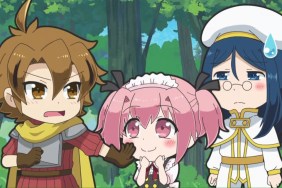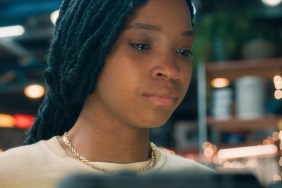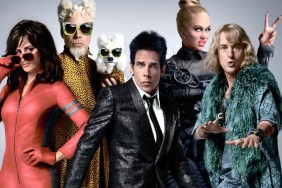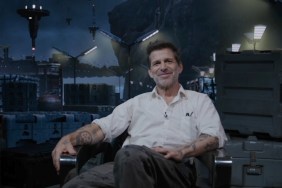Just over five years ago, Justin Lin debuted his first movie Better Luck Tomorrow at the Sundance Film Festival, and the unique grassroots movement that surrounded his impressive independent debut got a lot of attention in Hollywood. In the years since then, Lin has been working frequently for the studios, having directed two movies that came out in 2006–Annapolis for Touchstone Pictures and Universal’s The Fast and the Furious–but after that, he decided to make his dream project, Finishing the Game, a comic documentary set in the ’70s about a production company trying to finish Bruce Lee’s Game of Death after the martial arts legend’s passing, leading to a series of bizarre auditions and even stranger candidates. Far from the budgets he’d been working with, Lin made the movie for roughly $500,000.
In an industry where most of the established Asian filmmakers actually come from the Asian film industry, Lin has become an inspiration to young Asian-Americans who want to get into filmmaking. For everyone else, it’s an amazing Hollywood success story and Finishing the Game shows that you can indeed go home and do what you love after playing the Hollywood game.
ComingSoon.net: This movie might be seen as a departure from your previous three movies. Is this something you’ve been wanting to do for a long time?
Justin Lin: Yeah, I mean the idea has been with me since I was a kid, but the timing felt right, because I kinda had the structure in my head of the film, but until I got the theme, the point of view of the film, I didn’t feel like I was ready. I think having worked in the studio world for a few years, I realized I really wanted to have fun and explore the theme of denial, so that became the impetus to kind of get this thing going.
CS: Had you written the script a while ago and been working on it over the years or did you just start working on it when it came time to make it?
Lin: I’ve had the idea and I kind of had an outline and with comedy, you kind of have to have the rhythm and momentum, so literally, when I felt like it was ready, my friend Josh [Diamond] and I would just go off and start writing. Without achieving that kind of rhythm, it was really hard to get any kind of perspective on the project.
CS: Is this the first movie you’ve written yourself since “Better Luck Tomorrow”?
Lin: Yeah, well, when you make a credit card no-budget film, you’re in the hole quite a bit, so I actually did a lot of rewrites for studios just to try to pay the bills, but this is one that was my idea and I got to really nurture it. I’ve written other things, but it’s more kind of like day job scenario. (laughs)
CS: How was it returning to the indie world after making bigger budget movies? For a small budget movie, it still looked pretty amazing.
Lin: Oh, thank you. You know what? It’s where I came from, and I really do feel like when you do indie projects, usually you’re not doing it because you want to. I think every project has its own lifespan and its own journey, and this was a very specific project that after “Better Luck Tomorrow,” it kind of opened the door for me and changed my life, and I was able to go into meetings with studio execs. They’d already ask what I wanted to do, and I would mention this project and they’d get really excited. At one point, there was an offer out for a pretty big budget for it, and I got really excited and thought that I get to make my movie with my budget, but very quickly, I realized that the studio wanted to make it into a “Kung Fu Hustle.” That’s totally fine but it just wasn’t the movie I wanted to make. I think when you make studio films, these projects come to you that you have to choose, but I think when you’re nurturing your own ideasthese are the personal decisions you have to make as a filmmaker. It got to the point that to have independence, we’d have to do it the old-fashioned way. I love doing it and it is a struggle and it’s very hard, but I think the one big thing I learned is that when you make studio movies, money is a currency. Money can shut down cities. You crash a car, you have seven more around the corner, but with truly no-budget indie movies, you realize that passion is the currency because there’s no money. Everybody that came onboard from the actors to the crew to the P.A., they all came on for the right reasons. I think that’s something I also learned is that it’s very much a privilege. If noone believed in the movie, I wouldn’t be able to make the movie. To be able to get back into that kind of energy and to work with the people that we’ve grown up together, it was very special. I think these are things I realize as I learn more and more about what it means to be a filmmaker, that this is definitely a privilege.

CS: I talk to a lot of filmmakers who do independent and studio films and they always feel they could do so much more if they were able to do the smaller films with more money. Was that ever an issue on this movie?
Lin: Actually, when I was in film school, I did this film with my friendwe made this feature for $40,000, and I remember we were at Toronto and the critics were coming to see it, and I was really excited. It was our first big festival, and I had this urge to run in front of the screen and to explain to them, “If I had more money, I would shoot it this way. If I had more money, I would do this.” It was such a horrible feeling that I think the lesson from that was that you just have to embrace and figure things out. Someone’s going to put two hours of their lives in that room in watching it and you have to respect that. Whether you make it for like $2 or $200 million movie, you really have to respect the viewer. I knew that going in. I knew that this was the anti-no-budget movie. It’s hard to do a period piece when everything from hair to wardrobe to sets, it has to be a period. This was the one thing where doing a “Fast and the Furious” really helped. A lot of the people that I met and have relationships with now, really stepped up and helped us out. We had sets that were coming off studio films, they would just truck it to our warehouse for us. There was a duck outfit that we made for “Fast and Furious” and I grabbed that and put it in this movie. A lot of my friends at Universal really stepped-up and helped us on the wardrobe, props and stuff like that. You realize that it is an industry of relationships and you think people get it when you’re doing something and you have the budget and they also know when you’re doing something because you really want to do it and need the support. With all those people coming forward, there was no way we could have been able to make the film. That was the struggle for this one. Again, you know where that line is and with all those people’s helped, I was able to squeak over that line.
CS: There are a lot of movies that have come out of Sundance made for no money, like this Irish movie “Once” that cost less than $100,000.
Lin: Oh, yeah, yeah, great film.
CS: The point of that is that I think people just want a good story and interesting characters and the budget doesn’t matter as much. How important was it to set the movie in the ’70s?
Lin: I think it was a few years ago there was this thing that came out called “The Lost Interviews with Bruce Lee.” It’s this black and white Canadian kind of Charlie Rose type show and they were interviewing him, and it was a great interview. The thing that really blew me away was if you watch that interview and you didn’t know when that interview took place, everything that he was saying could apply to today’s Asian-American actors and today’s filmmakers, so I thought if somehow we could pull it off and make it ’70s, it gave it more context. That was kind of the inspiration.
CS: Obviously, you’ve been able to bring a lot of Asian-American actors into your own movies but the lack of strong Asian roles in Hollywood films is still an issue. What was interesting to me was that with reality TV, this could have very well been set in modern-day, because you could see someone doing a show called “Who’s the New Bruce Lee?” It wouldn’t be that unusual.
Lin: (laughs) You have to copyright that, man!
CS: It’s all yours. You can use your movie as the pilot for the show.
Lin: (laughs) Exactly.
CS: I guess in this day and age, it’s more likely to be “The New Jackie Chan” though.
Lin: What’s amazing is that was also our exercise in this movie whereas we wanted to make a film where you actually never see the image of Bruce Lee, but the goal was to still feel his presence. This is more than thirty years after his death, and it’s amazing, showing this film at Sundance and all over the place. We’ve gone to all these festivals in the last nine months and we go in these little towns like Eugene, Oregon and these little 10 year olds they watch it, and they know who Bruce Lee is. It’s unbelievable that he’s able to transcend time and his presence is very much with us.
CS: That’s surprising because you don’t see his movies on TV but I guess the DVD age has helped keep his presence alive.
Lin: Yeah, and also I think a lot of his poses, I actually was very intrigued. I talked to a lot of kids and they were his fans, but if you really talked to him about his films, they maybe saw one, but his image is all over the place and they recognize him. They actually identify more with those images.

CS: I liked how you recreated the look and feel of ’70s shows and martial arts film. I had to do a double take when I first saw that footage of Roger Lan as “Breeze Loo” because I thought maybe you found a real ’70s knock-off. What was involved with recreating those shows?
Lin: It was a lot of fun. I grew up in the film school, so back when I was in film school, we always got the crappy equipment. When we were doing our TV production classes, they would be these huge cameras from the ’70s that were donated to the film school. These were tube cameras where you can’t point it at bright lights or else you’ll blow the tube. Our projects looked very dated, so we were always trying to get out of that, and then now I’m making this project where we actually had to go and study and rent crappy old equipment. (laughs) I think that was the fun part to watch retro stuff and try to stay very true. I remember when I met with Tom Clancy, the DP, and I told him, “If you do your job on this movie, you probably will not have anything to put on your reel because it’s going to look like crap.” (laughs) “That’s when I know you’ve done your job.” (laughs)
CS: This is the third time you’ve worked with Roger and Sung Hang. Did you have them in mind for these characters specifically when you came up with them?
Lin: Yeah. I feel like every film that I’m doing, I’m growing and I’m learning a lot. One of the things that was a luxury here was in the course of the last three films especially, I got to work with a lot of great people, so when I was working with Josh (on the script), we were writing specifically for people. Out of the whole cast, Meredith and Monica were new to our family, but Roger, Sung, McCaleb and everybody we met along the way. I have to say that it’s a really nice process to do that. Coming from a world where actors are being packaged and you’re negotiating these packages, to be able to sit there creatively and say
you know, like Sung always plays the cool guy, but we know Sung and this character is probably closer to who he is, so we were able to take advantage of that.
CS: I liked seeing Dustin Nguyen because he doesn’t do very many movies but he’s a really good actor.
Lin: Yeah, and Dustin is also a great human being. When I grew up, aside from Sulu, “21 Jump Street” was the only other show with an Asian-American character so it was really great to work with him, but also meet him, and usually when you meet people like that, you’re always disappointed, but he’s a great actor. He did “Little Fish,” you saw that?
CS: Yeah, I interviewed him for that in Toronto two years ago. Did it take a lot of convincing to get him to do this?
Lin: No, again for me personally, it was kind of nice to feel that I’ve grown in this industry that I can call Ron Jeremy and he like jumped at it. I wanted to meet Dustin and work with him, so as soon as the situation came up, we just went to lunch and it was a perfect match.
CS: I had forgotten about that porn scene, so was that an actual porn film shoot that you just “borrowed” for the movie?
Lin: (laughs) I think that set is from
we grabbed from a Universal movie again. I think it was from “You, Me and Dupree” we grabbed some stuff from that. (laughs) It’s funny because it’s a no-budget shoot, so we had all these people booked and I really wanted them to look like porn stars from the ’70s, so they had to have natural breasts, so all these people volunteered even though we had no money. I guess the day of, a lot of people showed up and they found out I was directing it, and they thought they were doing a no-budget film that noone was ever going to see, so for some reason, they got scared. I still don’t know exactly why. We lost all our female nude extras, but we had all our nude male extras, so it was a mad scramble, but we called around and a lot of people stepped-up and really helped us by taking off all their clothes.
CS: I’m not sure I realized right away that the movie was set in the ’70s but now that scene is even funnier when you realize that was one of Ron Jeremy’s ’70s films.
Lin: (laughs) He is a total pro. It was great to work with him.
CS: It’s interesting to see Sung playing the innocent nice guy because even your movies, he tends to play cockier characters, so it was surprising to see him in that role.
Lin: Again, I agree with you. He’s a very talented actor, and we’re in the business right now where playing it safe is kind of the core game plan, so a lot of actors don’t really ever get to stretch. If you’re going to do an independent film, you should really try to embrace it, and I think when you work with talented people, hopefully, in the right situation, we could create the opportunity to work on something new and really stretch their muscles. That was something we really wanted to do with all the actors.

CS: What was it like returning to Sundance with this movie after five years? Did you return as the maker of “Better Luck Tomorrow” or was it as “Justin Lin, Hollywood filmmaker”?
Lin: (laughs) People were confused! I tell you it was great. It brought back very strong emotions, because I remember going last in 2002 and I literally got lucky. I never gamble but we stopped in Vegas, because we drove, and I won like 100 bucks and that was enough to buy me my snow boots. That’s how broke we were, you know? It was good to go back and see old friends and not be in six-figure credit card debt. I don’t think I ever thought about it unitl I got there, and Sundance is one of those amazing places where you can walk down Main Street any given night and you can see filmmakers’ lives change, for better or their dreams crushed. It’s such an intense place, but to be able to revisit that with good friends, and there was a bunch of us, and just having fun, that was very special.
CS: It’s hard to believe it was five years ago, but is it hard to separate the Justin Lin who does all these Hollywood movies and has to be responsible for all these big budgets from the guy who came into it from film school those years ago?
Lin: Look, I come from a working class family, and to me, it’s very clear. With “Finishing the Game,” there was a choice. Do you go with the studio version or do you do indie? When you make these decisions and you know what you’re getting yourself into, and I get it. I’ve learned a lot about making studio films and the machine that makes the studio films, and I think that every project is appropriate for its own journey. For me, I don’t want to sound like I’m saying the studio thing sucks but I almost feel like that’s a bit more my day job. I still work hard and I still go in and I’m trying to make the best movie, whether it’s the best popcorn movie or whatever we’re trying to accomplish, the goal has to be agreed upon hopefully with me and the studio head, and at that point, I feel like you’re trying to accomplish the best version of whatever you’re trying to accomplish. I think that the indie project is something to me that’s very clear. My goal is to hopefully to make my passion project and not to have to ask for favors from everyone every time. (laughs) That’s hopefully part of the growth and hopefully, I’ll be able to make my passion project and actually get decent funding and really be able to take care of everybody the way they deserve. I just feel that’s part of my growth. I’ve had the opportunity to try a lot of every different ways of filmmaking so I think I’m definitely at a better place today. I think I’m also a better filmmaker today than I was five years ago.
Finishing the Game opens in New York at the IFC Center and in other select cities on Friday, October 5. You can also read what Justin said about a couple of his other projects by clicking here.









